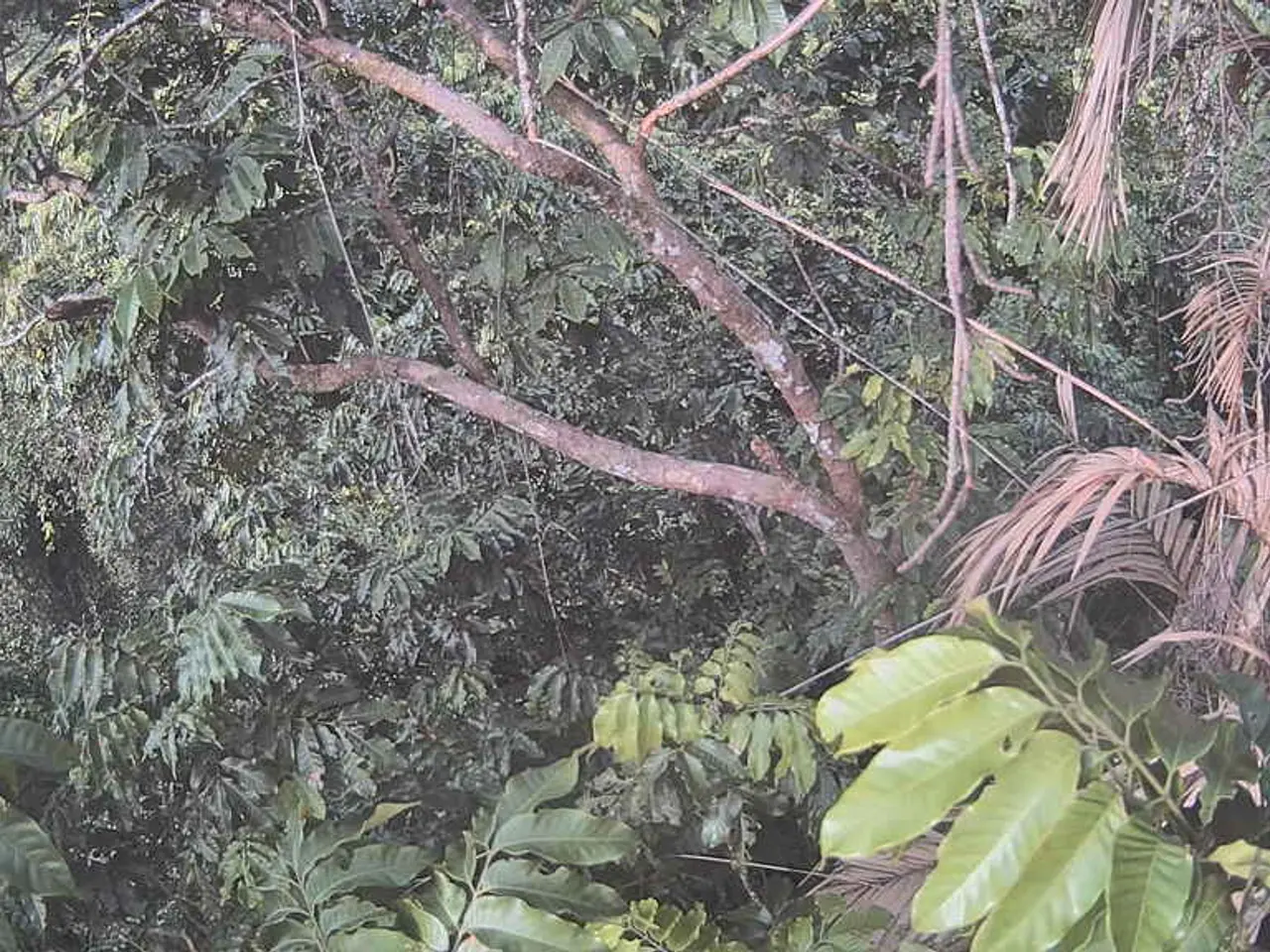Nine Varieties of Palm Trees to Revamp Your Outdoor Environment
From the majestic Canary Island Date Palm to the unique Spindle Palm, palm trees add a touch of tropical elegance to any landscape. Here's an overview of some of the most popular palm tree species, their key characteristics, and growth conditions.
The Canary Island Date Palm, with its stout, sturdy trunk and majestic, fan-shaped fronds, is a classic choice for residential landscapes and public spaces. It thrives in well-drained soil, is drought-tolerant once established, and prefers full sun. Native to the Canary Islands, it can grow up to 66 feet tall.
The Foxtail Palm, native to Australia, is another popular species known for its long, bushy fronds that resemble a fox's tail. It's a favourite in residential and commercial landscapes due to its beautiful appearance and ease of maintenance. It requires regular watering but is otherwise drought-tolerant once established and prefers full sun.
The Bottle Palm, with its unique bottle-shaped trunk, is a distinct variety known for its slow to moderate growth rate. It prefers full sun to partial shade, well-draining, sandy soil, and a soil pH of 6.0-7.5. It's native to the Mascarene Islands.
The Areca Palm, a popular indoor palm tree, is admired for its delicate fronds and attractive form. It prefers indirect sun, well-drained, sandy or loamy soil, and a soil pH of 6.1-7.5. It grows at a moderate rate and thrives in low-light conditions, making it an excellent option for both homes and offices.
The Queen Palm thrives in warm climates and is known for its feathery fronds and graceful appearance. It prefers full sun to partial shade, well-draining, sandy or loamy soil, and a soil pH of 6.0-7.5. It grows at a fast rate and produces attractive yellow flowers in spring.
The Spindle Palm is a unique and distinctive variety known for its graceful, slender trunk that flares out at the base, resembling the shape of a spindle. It thrives in tropical and subtropical climates.
The Christmas palm tree is known for its festive red fruits.
The Canary Island Date Palm, despite being a slow grower, thrives in full sun, well-drained soil, and is drought-tolerant once established.
The Coconut Palm, with its slender trunk and towering height, brings a touch of the Indian Ocean to any backyard. It requires tropical coastal climates, prefers sandy, well-drained soil, high humidity, and full sun, but is sensitive to frost.
The African Oil Palm, also has large, feathery fronds and clusters of reddish fruits, making it an attractive choice for large tropical landscapes and farms. It prefers full sun, well-drained, fertile soil, and a soil pH of 5.5-7.0. It grows at a fast rate and is an important agricultural crop.
The Pygmy Date Palm, a small, slow-growing variety ideal for residential landscapes and smaller spaces, prefers full sun to partial shade, well-draining, sandy or loamy soil, and a soil pH of 6.1-7.8. It's drought tolerant once established and requires minimal maintenance.
Palm trees come in various shapes, sizes, and colours, making them the perfect addition to any landscape. The Florida thatch palm is a hardy native species perfect for coastal areas. The Mexican fan palm, cabbage palm, Chinese fan palm, and others are distinct palm tree varieties with unique characteristics. The jelly palm, or pindo palm, produces small, edible fruits that can be used to make jelly.
In summary, most palms prefer well-drained, fertile soil and full sun to partial shade. Cold tolerance varies widely, with the Canary Island Date Palm withstanding USDA zone 9, while others like the Bottle and Spindle Palms are frost sensitive. Tropical palms like the Coconut, African Oil, and Areca palms need warm, humid climates and do not tolerate frost. Sizes range from small (Pygmy Date Palm up to 5m) to very tall palms (Canary Island Date up to 66ft or more). Several palms are prized for ornamental use due to distinctive trunk shapes (Bottle, Spindle), attractive foliage (Foxtail, Areca), or fruit production (Coconut, African Oil).
Palm trees offer more than just aesthetic appeal; they provide shade, require minimal maintenance, and can enhance the environmental quality of surroundings.
In the realm of lifestyle and home designs, the Canary Island Date Palm, with its sturdy build and tropical elegance, is a popular choice for incorporating natural beauty into residential landscapes. Fashion-and-beauty enthusiasts might also appreciate the Areca Palm, a charming indoor palm tree admired for its delicate fronds and attractive form.






